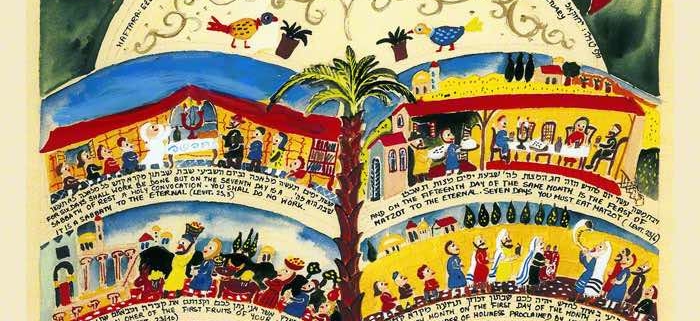The double parsha of Behar–Bechukotai teaches a deeply relevant message for our times: true freedom, peace, and sustainability come from aligning with sacred….READ MORE.
Parshat Emor, often seen as a technical portion filled with laws about priests, festivals, and justice, can be reinterpreted today as a call to live with intentional boundaries in a boundaryless world…READ MORE.
Acharei Mot–Kedoshim offers a powerful and inclusive vision of holiness grounded not in separation or perfection, but in ethical living and communal responsibility.
PARASHA OF THE WEEK Double Parasha 28 Tazria & 29 Metzora – The Studio in Venice – this week we present a double Work of Art by Michal Meron
Parshat Shemini unfolds like a breath held too long, suspended between ecstasy and awe, order and rupture….READ MORE.
Parashat Tzav focuses on the details of the Temple service, particularly the role of the priests and the different types of offerings. At first glance, it might seem distant from our everyday lives, but there’s something deeply human in its message…READ MORE.
Parashat Vayikra opens the book of Leviticus with a focus on offerings, detailing the different types of sacrifices brought to the Mishkan.
While the ancient practice of sacrifice may seem distant..READ MORE.
Parashat Pekudei is a moment of reflection, an accounting of all that was built for the Mishkan, a spiritual and physical space where the Divine could dwell among the people…READ MORE.
Parshat Ki Tisa reveals the tension between human impatience and divine timing. When Moshe delayed descending from Har Sinai, Bnei Yisrael panicked and sought immediate comfort in the Golden Calf. This speaks…READ MORE.
Parshat Ki Tisa reveals the tension between human impatience and divine timing. When Moshe delayed descending from Har Sinai, Bnei Yisrael panicked and sought immediate comfort in the Golden Calf. This speaks…READ MORE.
Store Opening Hours:
opening hours:
10 – 19
Closed on Saturday and other Jewish Holidays
The Studio in Venice by Michal Meron
Cannaregio 1152 – Ghetto Vecchio
30121 Venezia Ve Italy
Ph.: +39 041716689


 ©2025 The Studio in Venice by Michal Meron
©2025 The Studio in Venice by Michal Meron ©2025 The Studio in Venice by Michal Meron
©2025 The Studio in Venice by Michal Meron ©2021 The Studio in Venice By Michal Meron
©2021 The Studio in Venice By Michal Meron ©2025 The Studio in Venice by Michal Meron
©2025 The Studio in Venice by Michal Meron ©2025 The Studio in Venice by Michal Meron
©2025 The Studio in Venice by Michal Meron ©2025 thestudioinivenice.com by Michal Meron
©2025 thestudioinivenice.com by Michal Meron ©2025 The Studio in Venice by Michal Meron
©2025 The Studio in Venice by Michal Meron ©2025 The Studio in Venice by Michal Meron
©2025 The Studio in Venice by Michal Meron ©2025 The Studio in Venice by Michal Meron
©2025 The Studio in Venice by Michal Meron